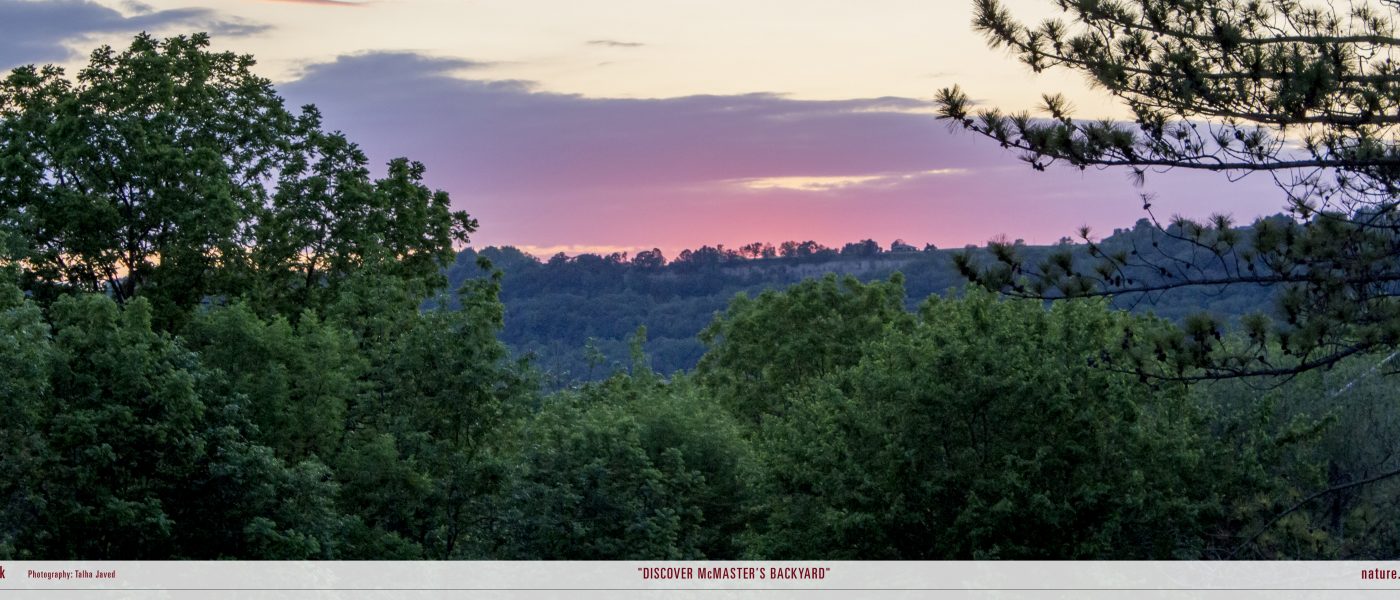Nature at McMaster assists with the land management of natural areas on McMaster University property. This work includes trail maintenance and invasive and native species management, as well as facilitating hiking events, stewardship projects, and classroom and outdoor learning programming.
Nature at McMaster was created through the Presidents Advisory Committee on Natural Lands, in partnership with the Department of Athletics and Recreation in 2016. The President’s Advisory Committee on Natural Lands serves to inform the Office of the President on issues related to and concerning natural lands, environment, wildlife, and sustainability both in around McMaster’s campus.
Information Box Group
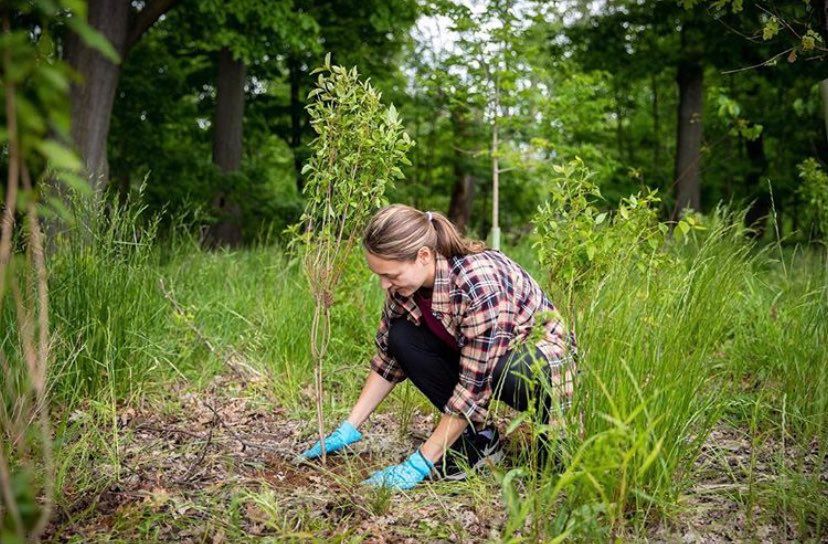
Stewardship Learn More
Nature at McMaster is committed to promoting environmental stewardship through diverse activities, including tree planting, invasive species control, research projects, clean-ups, and artificial habitat building for wildlife.
We partner with McMaster groups, clubs, classes, and community members to organize and run these events, raising awareness and encouraging hands-on conservation efforts.
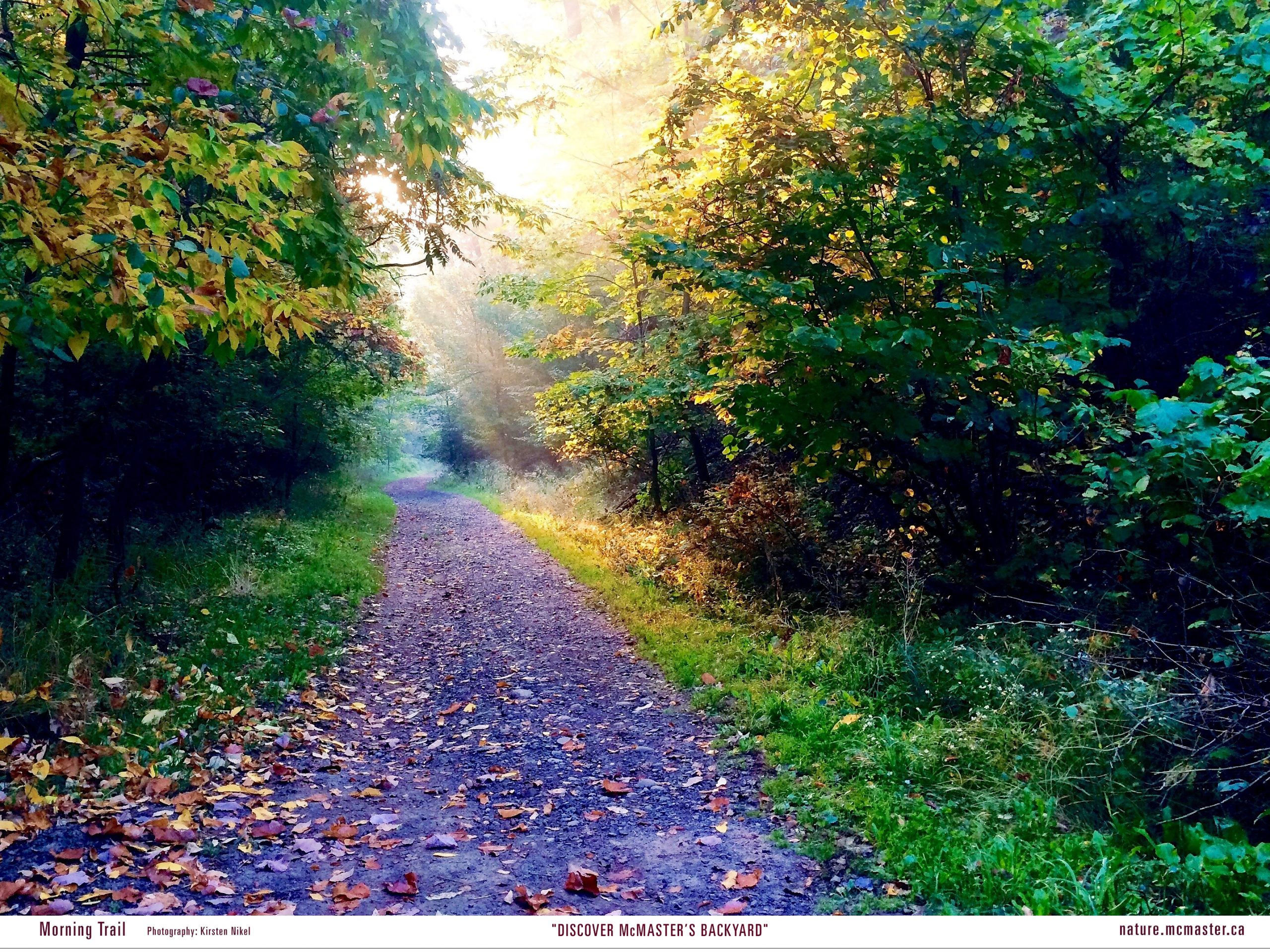
Education
Nature at McMaster promotes education about natural lands, ecology, environmental issues, and nature and health.
We facilitate learning opportunities about stewardship, restoration, and ecology through engagement events, tree plantings, and invasive species control.
Join us in promoting environmental education and stewardship for a sustainable future by participating in our events.
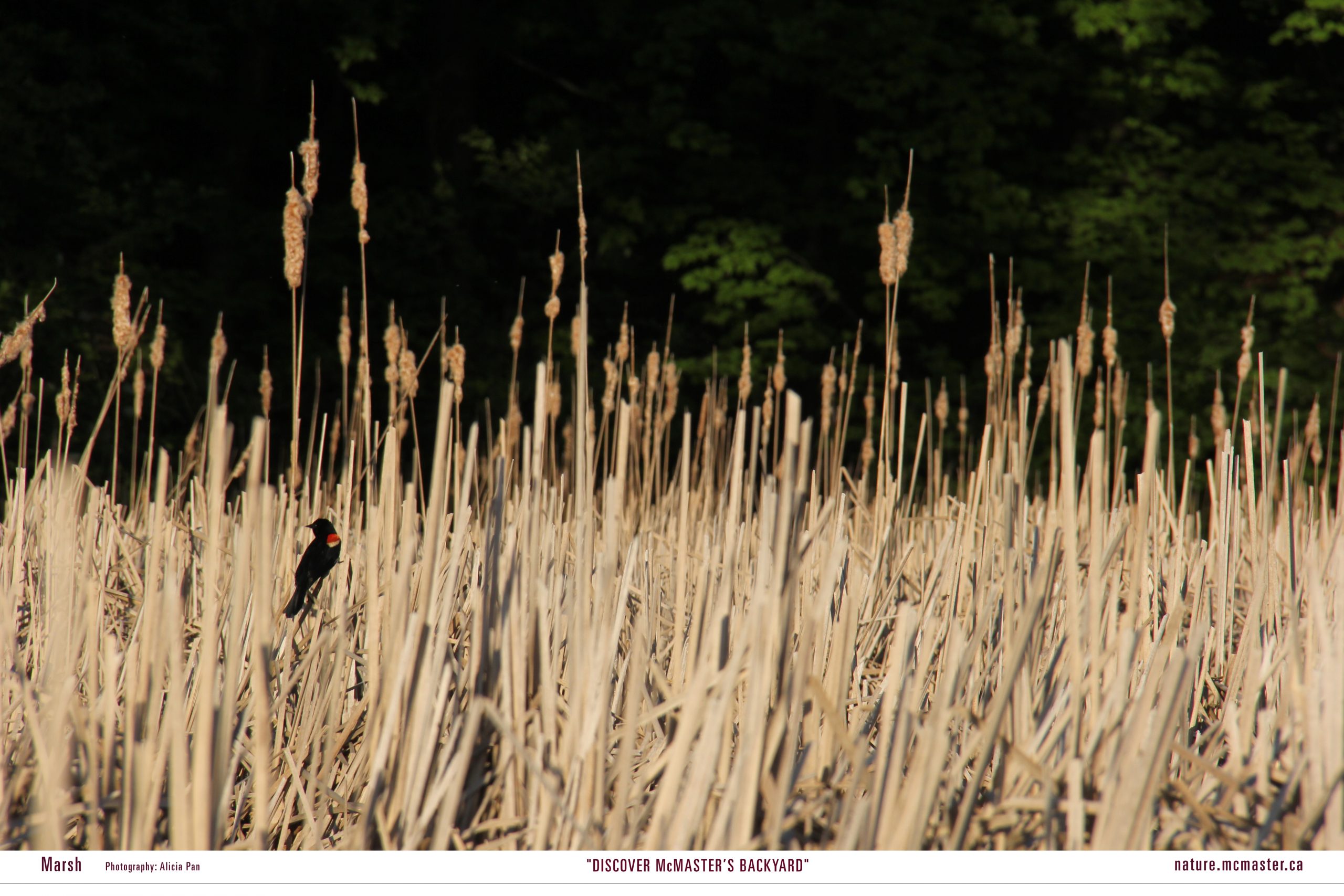
Land Management
Nature at McMaster collaborates closely with University Facility Services to manage and steward McMaster’s natural lands, including McMaster Forest and green spaces near the Royal Botanical Gardens and Hamilton Conservation Authority.
We focus on various activities like ecological restoration, invasive species management, habitat enhancement, and monitoring ecosystem health and biodiversity.
Through our joint efforts, we aim to preserve these essential natural lands for education, research, and recreation, promoting environmental sustainability and stewardship both on campus and in the wider community.
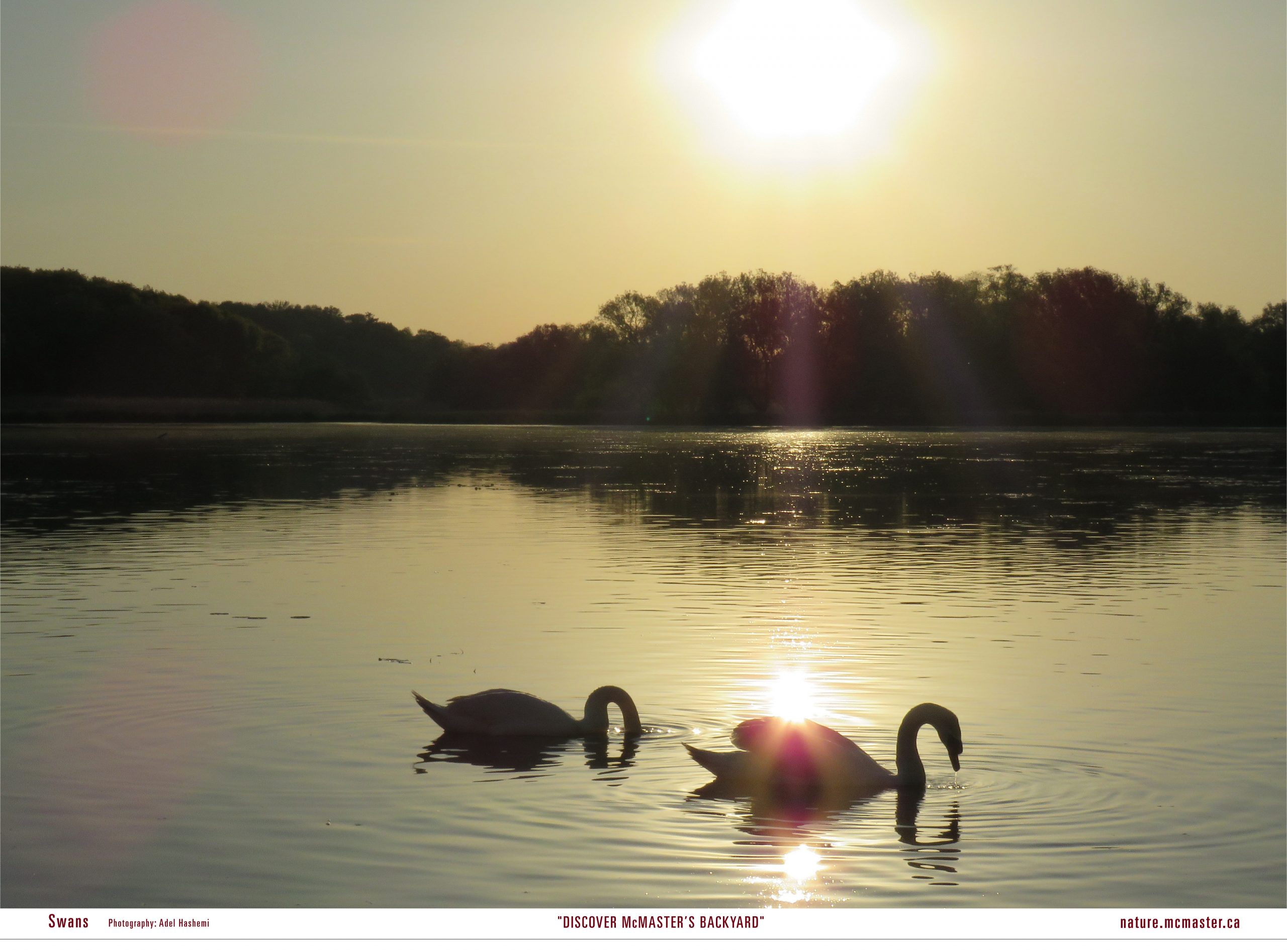
Sustainability On-Campus Partnerships
Nature at McMaster works closely with various university programs and committees to tackle sustainability issues affecting natural and environmental spaces.
Our commitment to sustainability helps maintain ecological diversity and fosters a greener campus. We organize and facilitate workshops, educational events, and initiatives, such as McMaster Sustainability Day, to raise awareness and understanding of sustainable practices.
Through collaboration, we strive to contribute to a sustainable future, ensuring the protection and preservation of our natural lands for future generations.

